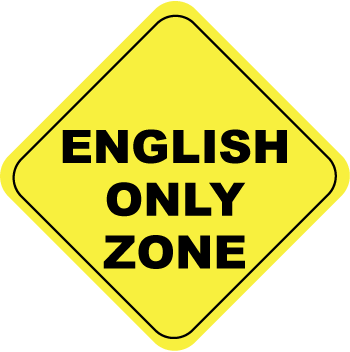By Eric B. Meyer
A few years ago, I posed this question: Is a workplace “English-only” rule legal?
Yadda, yadda, yadda, sometimes.
That is, in this Compliance Manual, the Equal Employment Opportunity Commission confirms that employers may adopt English-only rules under certain circumstances, insofar as it is adopted for non-discriminatory reasons (e.g., safety, business necessity) and not to discriminate on the basis of national origin.
An overly broad rule
But would that policy pass muster under the National Labor Relations Act?
Not necessarily, according to this recent Administrative Law Judge opinion, in which a group of hospitals maintained a work rule requiring employees to communicate only in English when conducting business at the hospitals or with each other, and when patients or customers are present or nearby. Employees also had to communicate only in English when communicating between staff and patients, and visitors or customers unless interpretation or translation is requested or required.
The Administrative Law Judge determined that this English-only rule was overly broad, as it could have the effect of discouraging employees from engaging in protected concerted activity:
I conclude that employees would reasonably construe Respondents’ English-only rule to restrict them from engaging in concerted activity….Because Respondents’ English-only rule is vague as to time and location (i.e., must use English in patient and non-patient areas, in patient access areas, and between employees, staff, customers, patients and visitors), it infringes on an employee’s ability to freely discuss and communicate about work conditions, wages and other terms and conditions of employment. As such, I find that Respondents’ language restrictions would prohibit speech that “cut(s) to the very essence of activity which the Act protects because all other actions contemplated by the statutory scheme flow out of employees’ discussions about their wages, hours and other terms and conditions of employment….”
There are labor law considerations
Employees have the right to discuss work conditions with one another.
The National Labor Relations Act applies in many union and non-union workplaces. And, as far as I could tell, the employer in this instance was a NON-union employer.
Therefore, if you are thinking about implementing English-only rules, consider both the employment and labor law implications.
Then call a lawyer.
This was originally published on Eric B. Meyer’s blog, The Employer Handbook.
